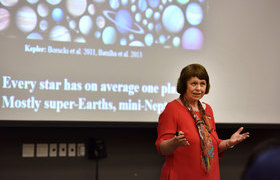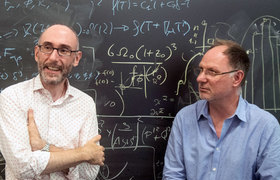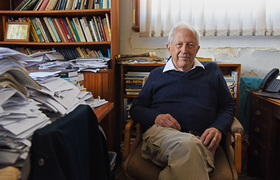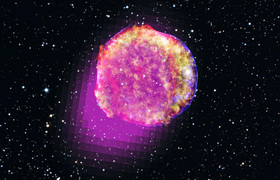Martinez first African to win prestigious space science medal
01 July 2020 | Story Helen Swingler. Read time >10 min.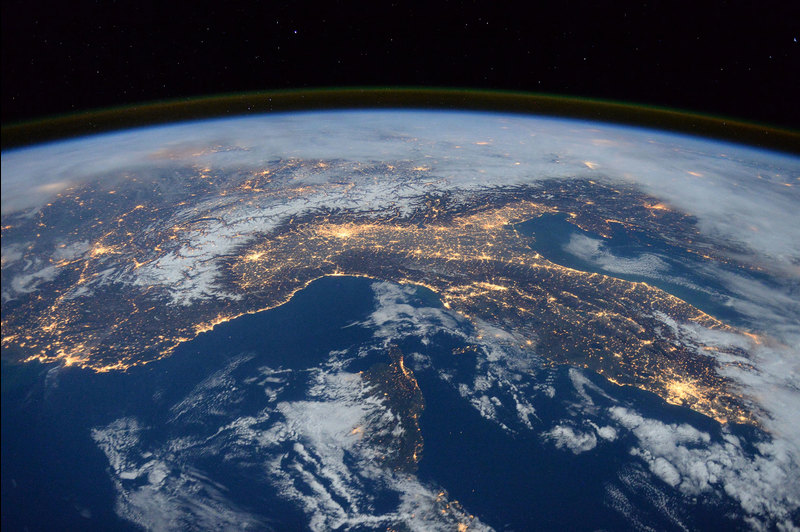
University of Cape Town (UCT) space expert Professor Peter Martinez has become the first African to win the prestigious Frank J Malina Astronautics Medal. The medal honours the late American aeronautical engineer and painter who made his name as a pioneer in the art world and the realm of scientific engineering.
First presented in 1986, the medal is awarded to educators who show excellence in taking full advantage of the resources available to them to promote the study of astronautics and related space sciences. Space science encompasses the study of the space environment; other celestial bodies, such as stars and planets; and, importantly, Earth as a planet.
The medal will be presented at the International Astronautical Congress, the premier gathering of space experts from around the world. This year’s congress has been postponed to October 2021.
Space trajectory
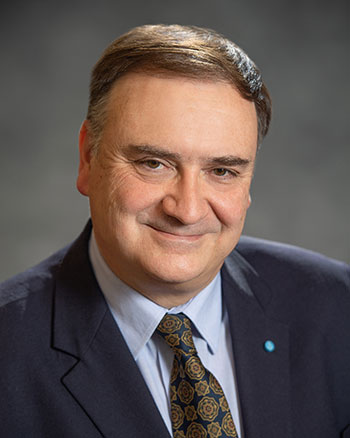
Martinez has a PhD in astronomy from UCT (1993) and was appointed in 2014 to coordinate UCT’s space studies programme in the Department of Electrical Engineering, where he founded the UCT SpaceLab. He is now an honorary professor and continues to support the space studies programme administration, teaching and supervising students while the university appoints his successor.
Martinez began his professional career as an astronomer at the South African Astronomical Observatory (SAAO), where he researched pulsating stars. His entry to space science has an interesting back story, a happy accident, while he was at the SAAO.
“One day our director, Dr Bob Stobie, walked into my office with a letter he had received from our foreign ministry and asked me if I would be able to support the South African delegation to the [United Nations] UN. They were looking for a space expert and had approached the observatory,” he recalled. “I agreed and when I got there I realised that the discussions were mostly about space activities and not so much about astronomy. But I knew way more about the topic than my fellow diplomats on the delegation, so they gradually involved me more and more in the debates and negotiations.”
“I’ve spent a lot of my time working in multilateral space diplomacy.”
Later, Martinez was asked to prepare national positions for the South African delegation and began working with the South African Council for Space Affairs (SACSA). In 2010 the Minister of Trade and Industry appointed him to chair SACSA and he became the chief regulatory official for space in South Africa. That year he was also invited to chair a UN process to develop a set of international guidelines for the sustainability of space activities.
“Since then, I’ve spent a lot of my time working in multilateral space diplomacy. In 2014 UCT recruited me as a professor of space studies to start the space studies programme in the Faculty of Engineering. I was at UCT from July 2014 until the end of September 2018, at which time I took up my present position as the executive director of the Secure World Foundation.”
Asked whether the interest in African space science had changed after South African-born Elon Musk recently launched SpaceX’s Dragon Endeavour spacecraft to the International Space Station, Martinez said that focus had begun long before the Demo-2 mission.
“The current momentum started in the early 2000s with the successful development of the Southern African Large Telescope by the SAAO, which emboldened South Africa to bid (ultimately successfully) to host the Square Kilometre Array.”
These developments opened the way for the emergence of a civil space programme in South Africa.
Diversity growing in space science
Over the past 15 years the African space arena had seen a huge evolution.
“Back in 2003, when I started my engagement with the South African government to talk about a space policy and establishing a national space agency, you could fit all the space experts in the country in a single seminar room – and they were mostly white and male,” Martinez said.
“We’ve since seen a tremendous growth in the number and diversity of space actors, and the emergence of several private sector actors. The same pattern has been followed in several other African countries. Quite a few African countries now have their own national space agencies and a regional African space agency is also currently under development.”
However, he believes Musk’s successful launch will definitely shape the way African space science students see their professional future.
“The successes of these students will serve to inspire others.”
“We experienced overwhelming interest from African students in the space studies programme at UCT. What limited their participation was access to funding. In the short space of a few years after the start of the programme, our postgraduate students started scooping some of the top student awards and prizes in the space world, showing that talented African students can compete with their counterparts from other nations – even those that have been in the space club for way longer than us.”
For example, in 2018 a South African team from the University of Pretoria won the most prestigious international space law competition – the first time an African team had ever won this contest, he said.
“The successes of these students will serve to inspire others.”
A larger stage
Since 2018 Martinez has been working on a larger international stage where he hopes his experience will continue to benefit UCT and the South African and African space arena. In an era of burgeoning exploration, he was hard-pressed to single out the most exciting developments in space science.
“Space exploration is growing in so many exciting ways, both in terms of robotic exploration and human spaceflight. I should also emphasise that space systems make tremendous contributions to human and environmental security on Earth and support work towards the UN Sustainable Development Goals in many ways,” Martinez noted.
“So, the biggest benefits of space science are felt right here on Earth.”
“All of us, whether we realise it or not, rely on the continuity of services provided by space systems. So, the biggest benefits of space science are felt right here on Earth.”
The advent of small satellites and the emergence of a private space sector also changed the space arena.
“We’re seeing an enormous growth in the number and diversity of space actors, and the emergence of new kinds of space activities. These developments hold great promise, but they also present challenges in how we preserve the sustainability of space activities and ensure that outer space remains a safe and stable domain for peaceful use and exploration.”
Space debris and weapons threat
But the burgeoning space enterprise has its downsides. Space activities of the past 50 years have generated a lot of space debris, risking operational satellites. And the number of satellites is expected to grow by an order of magnitude over the next decade or so, Martinez said.
“These developments mean that space is becoming more congested and contested. Moreover, we currently lack clear ‘rules of the road’ for several types of space activities. Different countries have fundamentally different views on various issues raised by these new space activities. We’re also seeing an increasing reliance on space by terrestrial militaries and the development of so-called counter-space capabilities aimed at disrupting, degrading or denying the space capabilities of potential adversaries.”
Although there are no weapons in space yet, Martinez said this could change if certain trends were not arrested through diplomatic and other means.
“The last thing we would like to see is space becoming a domain of military conflict. The dangers of space debris and conflict in space could render the earth’s orbital environment unusable for everyone, denying future generations access to all the benefits of space exploration that we take for granted today. These are some of the issues that we focus on at Secure World Foundation to ensure that the space domain remains accessible for peaceful uses for the benefit of all nations – now and in the future.”
“If there is one thing that space exploration teaches us, it is how special and fragile our home planet is.”
On Mars and medals
As a space scientist, would he like to live on Mars?
“I wouldn’t mind a visit, but I’m not sure I’d like to live out the rest of my days on Mars – one could only venture outdoors in a space suit! If there is one thing that space exploration teaches us, it is how special and fragile our home planet is, and the importance of stewardship. For the foreseeable future, the earth is the only home we have, and we all share a common future on our planet. We had better get this right, because when it comes to our survival as a species, as former UN Secretary General Ban Ki-moon often said about the urgency to tackle climate change, ‘There is no Plan B because there is no Planet B.’ ”
What does winning the Frank J Malina Astronautics Medal mean to him?
“I hope the international recognition this award brings to UCT as the home institution of the first African recipient of the Malina award, as well as the awards won by our students in the past few years, will underscore the international standing of the UCT space studies programme and the importance of nurturing this programme, which is unique on the African continent.
“Since my departure from UCT 19 months ago, my successor has still not been appointed. I hope our students and international partners won’t have to wait too much longer!”
 This work is licensed under a Creative Commons Attribution-NoDerivatives 4.0 International License.
This work is licensed under a Creative Commons Attribution-NoDerivatives 4.0 International License.
Please view the republishing articles page for more information.







